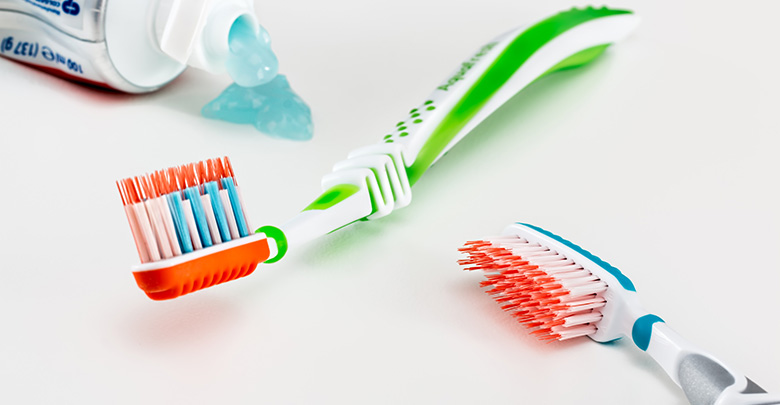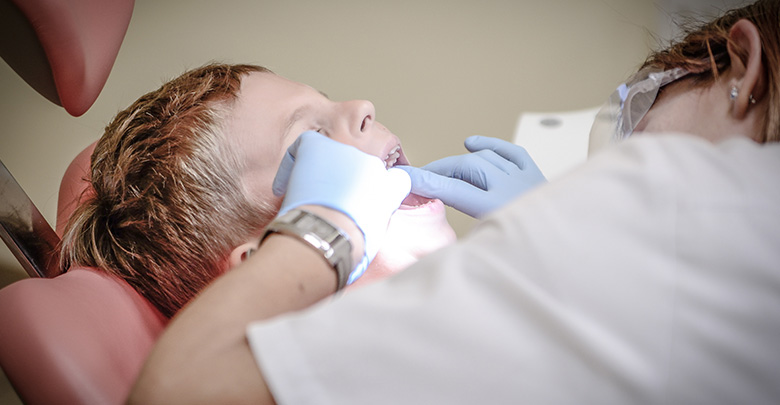
As we all know, teeth are the hardest organs in the human body. However, they are not indestructible. According to a survey by the World Health Organization, 3.5 billion people worldwide (about half of the global population) suffer from dental caries, periodontal disease, or even tooth loss.
In daily life, if we pay attention to oral health and take care of our teeth, we can avoid most oral problems. This article will guide you through several measures to maintain oral hygiene and protect dental health.
Съдържание
1. The Importance of Oral Health:
First, let’s understand the structure of teeth: natural teeth primarily consist of three parts: the outermost enamel layer, the dentin layer beneath the enamel, and the pulp layer composed of blood vessels and nerves.
Enamel is the hardest substance in the human body, and once damaged, it cannot be repaired. Enamel irritation can cause tooth sensitivity. The pulp is connected to nerves, and infection can cause severe pain.
When your teeth hurt badly, it means the pulp has been damaged. Additionally, oral health issues are closely linked to overall health. For example, oral problems can contribute to cardiovascular diseases and diabetes. Protecting oral health is urgent.
2. Correct brushing technique (twice daily)
Brushing is the simplest way to maintain dental health. We brush our teeth daily, but have you mastered the correct brushing technique? The correct brushing technique can be referenced as follows:
- Place the toothbrush at a 45-degree angle to the gums.
- Gently move the toothbrush back and forth with short, quick motions.
- Brush the buccal, lingual, and occlusal surfaces of the teeth.
- For the lingual surfaces of the front teeth, brush vertically at an angle, moving up and down a few times.
Choosing the right toothpaste is also important: Fluoride toothpaste is recommended, as it strengthens enamel and prevents cavities (children should use low-fluoride toothpaste). Those with sensitive dentin can use desensitizing toothpaste containing potassium or strontium salts. Avoid prolonged use of whitening toothpaste containing abrasives.
3. Use dental floss consistently
Some people may be skeptical about using dental floss, believing it may widen the gaps between teeth. However, dental professionals recommend using dental floss at least once a day to clean teeth.
Because the food we eat daily leaves some food particles stuck between our teeth. And when brushing, these food particles cannot be completely removed. If food particles remain between the teeth, bacteria can accumulate over time, leading to cavities.
Therefore, to remove food particles and plaque from between the teeth and along the gumline, it is recommended to use dental floss at least once a day.

4. Use mouthwash
There are many ways to maintain healthy oral care habits, and using mouthwash is a very effective method. Mouthwashes are primarily divided into fluoride-containing mouthwashes and antibacterial or cosmetic mouthwashes.
These two types of mouthwashes have some differences in usage. If you are using fluoride mouthwash, avoid rinsing your mouth for 30 minutes after use. This is because fluoride mouthwash requires time for the fluoride to fully contact the teeth, adhere to the tooth surface, strengthen enamel, and enhance cavity prevention.
For antibacterial or cosmetic mouthwash, you can typically rinse your mouth immediately after use. However, regardless of the type of mouthwash, it is not recommended to drink water within half an hour after use. Especially for fluoride-containing mouthwash, water can dilute the fluoride on the tooth surface, reducing the effectiveness of the mouthwash.
Tip: It is recommended to brush your teeth first, then use mouthwash, as this will yield better results.
5. Eat for healthy teeth.
The foods we eat daily have a significant impact on our oral health. Some foods are beneficial for strengthening gums and teeth. However, certain foods can damage teeth, leading to plaque and cavities.
Teeth-friendly foods include:
- Green leafy vegetables. Vegetables and fruits are rich in vitamins and minerals, which promote gum and tooth health.
- Dairy products and nuts. Especially milk, yogurt, and cheese, which are rich in minerals, help strengthen the enamel on the surface of teeth and enhance their resistance to plaque.
- Crisp fruits and vegetables. Chewing crisp fruits and vegetables stimulates the mouth to produce more saliva, which helps remove food particles and plaque.
- Lean meat protein. Lean meat is rich in phosphorus, a mineral essential for healthy teeth.
Foods that are bad for teeth include:
- High-sugar or highly acidic foods. Bacteria in the mouth feed on sugar, producing acid that erodes teeth and causes cavities. Acidic foods weaken enamel. Therefore, it is recommended to rinse your mouth promptly after consuming sweet or acidic foods.
- Carbonated beverages. Even sugar-free carbonated beverages are highly acidic and can erode enamel.
- Starchy foods. Bread, cookies, and potato chips, which are high in starch, are easily trapped between teeth, promoting bacterial growth and plaque formation.

6. Avoid harmful lifestyle habits
Do not smoke. Smoking increases the risk of gum disease, and heavy smokers often have yellow teeth. Avoid chewing ice or hard foods. Limit consumption of concentrated coffee and tea (which can stain teeth).
7. How special groups can maintain dental health
- Children: Parents should help or supervise children in brushing their teeth to develop good habits from an early age. Be sure to brush teeth after drinking milk at night.
- Pregnant women: Hormonal changes during pregnancy can easily lead to gingivitis, so it is important to strengthen dental hygiene.
- Elderly people: Due to severe gum recession in the elderly, it is recommended to use a soft-bristled toothbrush. Those with dry mouth can use sugar-free saliva substitutes.
8. Regular dental check-ups
It is recommended to have an oral examination every 6-12 months to detect cavities, periodontitis, and other issues early and receive timely treatment. When experiencing dental discomfort, do not think that you can save money by enduring it.
Dental issues typically worsen over time. Especially for children’s oral issues, the earlier they are addressed, the less time and money will be required. Regular dental cleanings are essential for preventing periodontal disease.
Tartar buildup can lead to periodontal disease, and since brushing alone cannot remove tartar, it is recommended to have professional teeth cleaning 1–2 times per year.
Summary
Maintaining oral health relies on a combination of scientific methods, good personal habits, and regular check-ups. Brush thoroughly, visit the dentist regularly, and develop good hygiene habits. Let your natural teeth accompany you into old age.
